My blue tooth headphones don’t connect right away, but with a satisfying chime, I’m in – on our last-minute WeChat call with “photo artist” Li Zhang, one of the winners of the UP21 global open call competition for young photographers, supported by MUSEC and the Lugano culture and museum foundation.
Born in Tongling, Anhui Province, China in 1991, Li Zhang (张郦) first began studying biotechnology. After moving to Germany, where he still lives, he decided to embrace photography, training at the “Hochschule der Bildenden Künste in Essen“.
With the project When I was a child, the photo artist proposes an introspective investigation into his own family, re-elaborating old shots taken by his grandfather, who was also a photographer. Through multiple scans and superimpositions, the original images are gradually blurred, creating new and surprising visual effects. People, objects and buildings are stretched, shortened, bent and rotated. The play of colours in Li Zhang’s images leads viewers to look at the photographs as if they were a kaleidoscope, transporting them to other realities and inviting them to take an inner journey into the artist’s childhood.
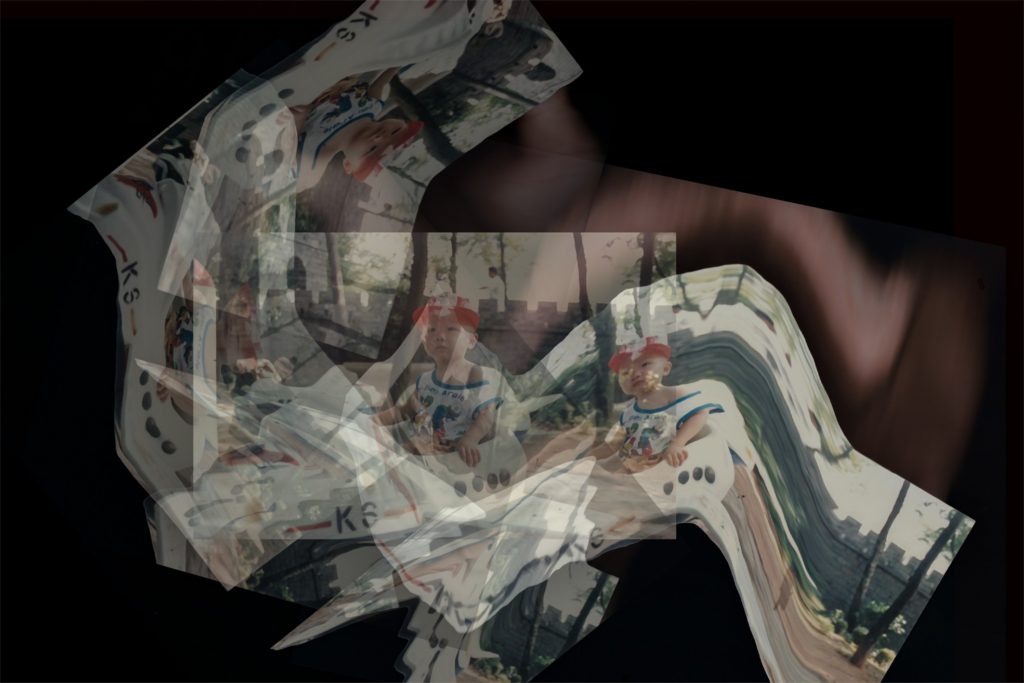
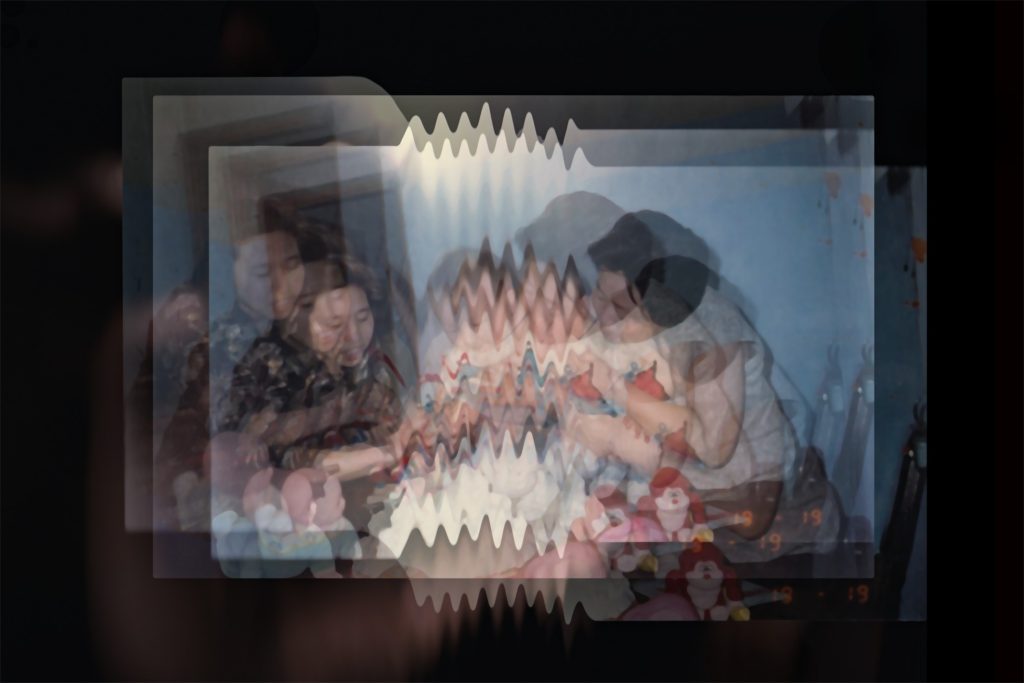
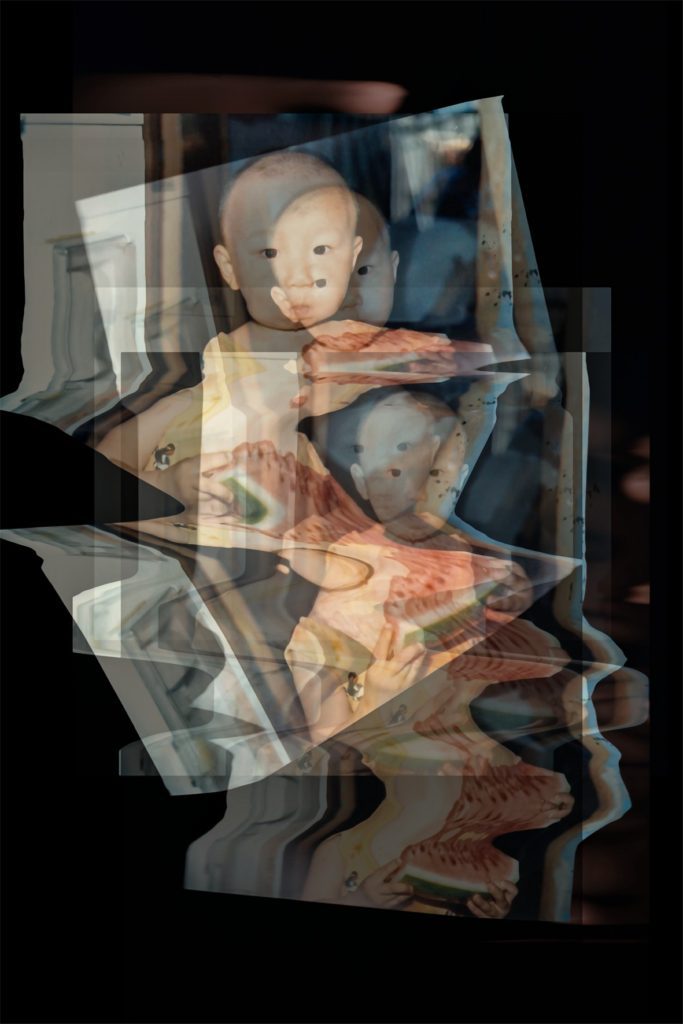
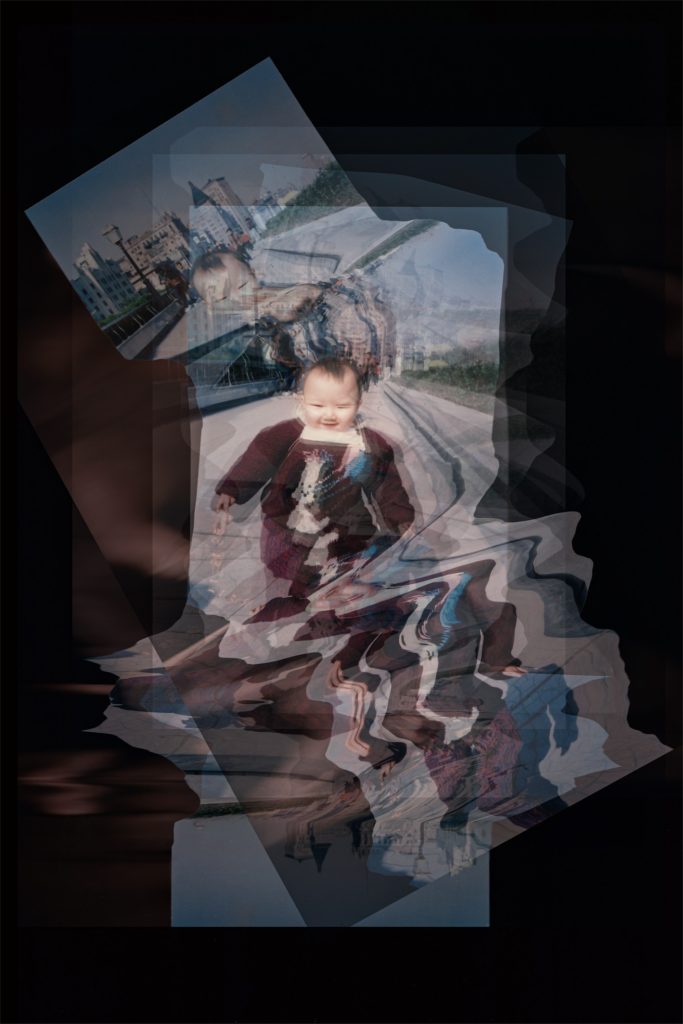
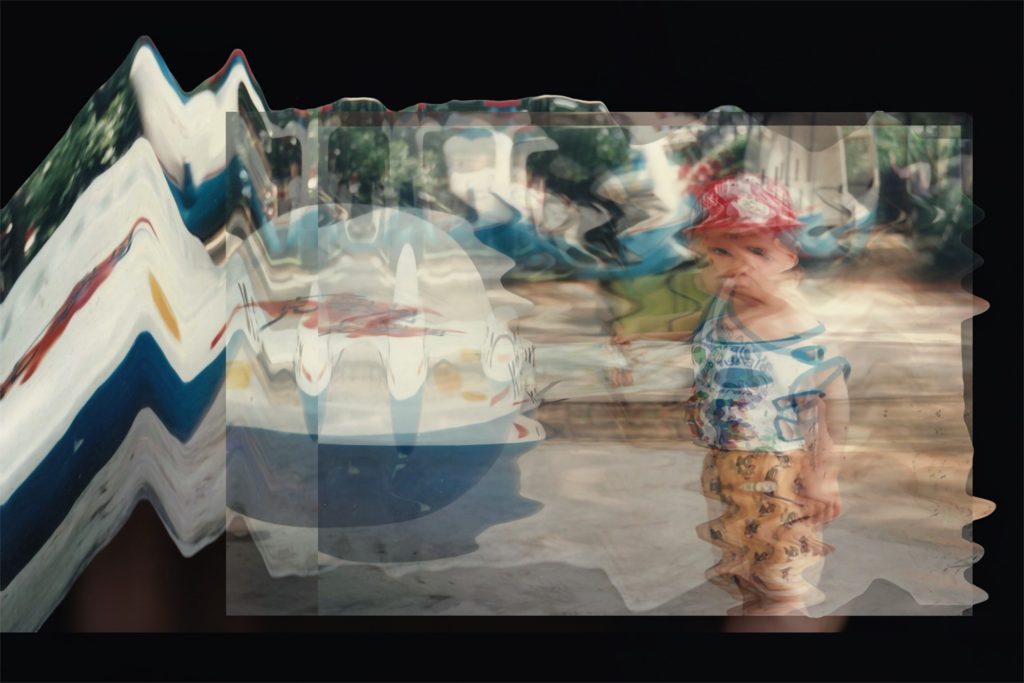
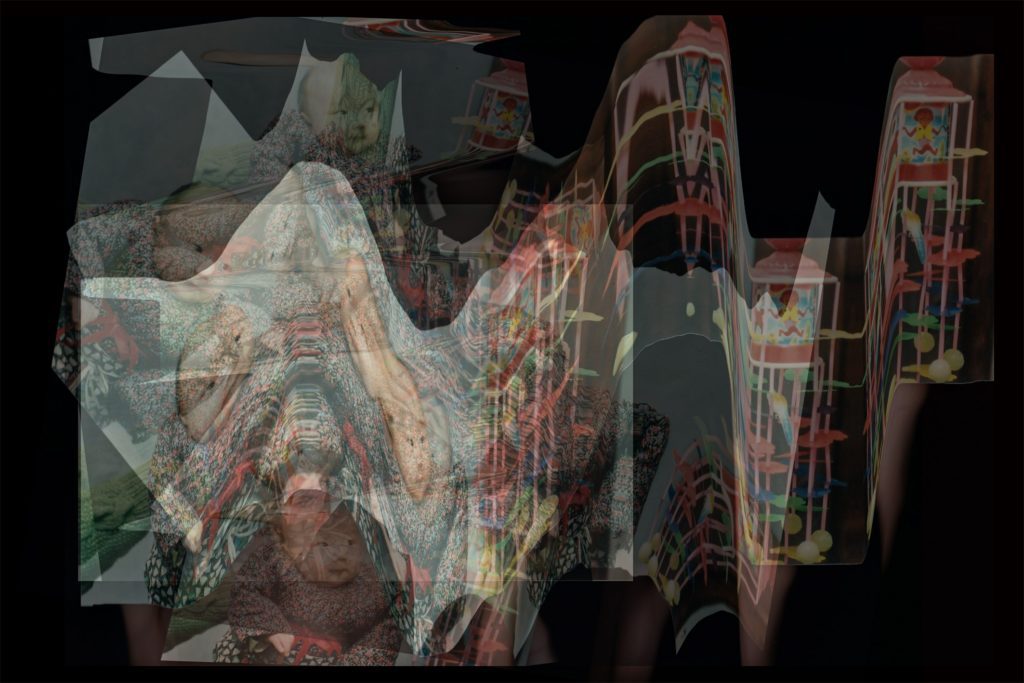
You can tell that the situation feels a bit unusual for the young photo artist. My colleague Cila translated the
English questions into Chinese and we talked about how he became what he is today, after his surprising
award by the international jury, chaired by the German photo artist Hans Georg Berger.
Li Zhang Interview
1. How did you become the person you are right now?
I think the question of how a person becomes what he is today is inseparable from two factors: His family and the environment he lives in. My grandfather was a photographer, which gave me the opportunity to be in touch with photography from an early age. Although I did not learn photography systematically since I was a child, I was always interested in photography. As a result of having access to a camera since childhood, over time photography has become an indispensable part of life. Secondly, in China, if you have not studied painting, or if you do not have some background in painting, you cannot study photography at university. In Germany, this is different. So, I wanted to cherish this opportunity and applied to university. Then, I started studying photography systematically and became who I am now.
2.What was your ”art awakening” and when did you find out you wanted to be an artist?
I don’t know if it’s the translation or the difference in language and culture, but when I see the word “artistic awakening” what flashes through my mind is someone who suddenly wakes up with some kind of superpower and becomes a genius or superhero.
For me, as an ordinary person, all I know is that I have fun taking pictures. When people think my photos are interesting and my ideas are intriguing, this makes me very happy. I’m actually a person who likes to express myself, but I’m also an introvert. I am not very good at using language to communicate with others. Photography or pictures have become a tool for me to convey my message to the outside world.
3. Why did you choose photography as your main medium to express yourself?
I feel as if I have no other medium to choose from, photography has become a part of my life, and when I need to express myself, my first thought is always photography.
4. Can you explain how you create art right now? Is there a specific process behind it?
I never had a fixed way to create my work and no theme that I always followed.
From the beginning, I was curious about what my subjects would look like if I moved the camera while I was shooting. It was Christmas night in Budapest and I was trying to photograph trees in a different way. It was very cold and I was freezing, but I was willing to stand in the street and keep shooting. Because you don’t know what you’re going to end up with visually, and that sense of unknown fascinates me. After that, I shot swans in pretty much the same way.
The other photo Untitled was created because I had just ended a relationship and I was sitting on the beach and looking at the sea all the time. It was a mixture of frantic and calm. Then I tried to destroy the photo to let out my feelings.
In 2019, my camera fell into the water, and soon after, there was an epidemic. I suddenly couldn’t go outside to shoot so easily. I began to realize that it was not a good thing for me to rely too much on the camera. If I didn’t have a camera as a tool, how would I be able to communicate my thoughts to the outside world? So I started to experiment with scanners to take photos.
Currently, or rather while working towards my master’s degree, I have been exploring family, memory, and archives. The creative tools are not limited to cameras either.
2020 was a very difficult year when my uncle died of diabetes. I looked at old photos of my family to find traces of his life. The breath in us is a series to remember him and those I often miss. No Signal 2021 I added symbols to my work representing my personal identity, such as the no signal and television test screen, and the snake to show my state of mind throughout the year.
In summary, no matter which series, I always describe what I see through photography, including my thoughts and emotions at the time. There is a very strong sense of identity in all of these works.
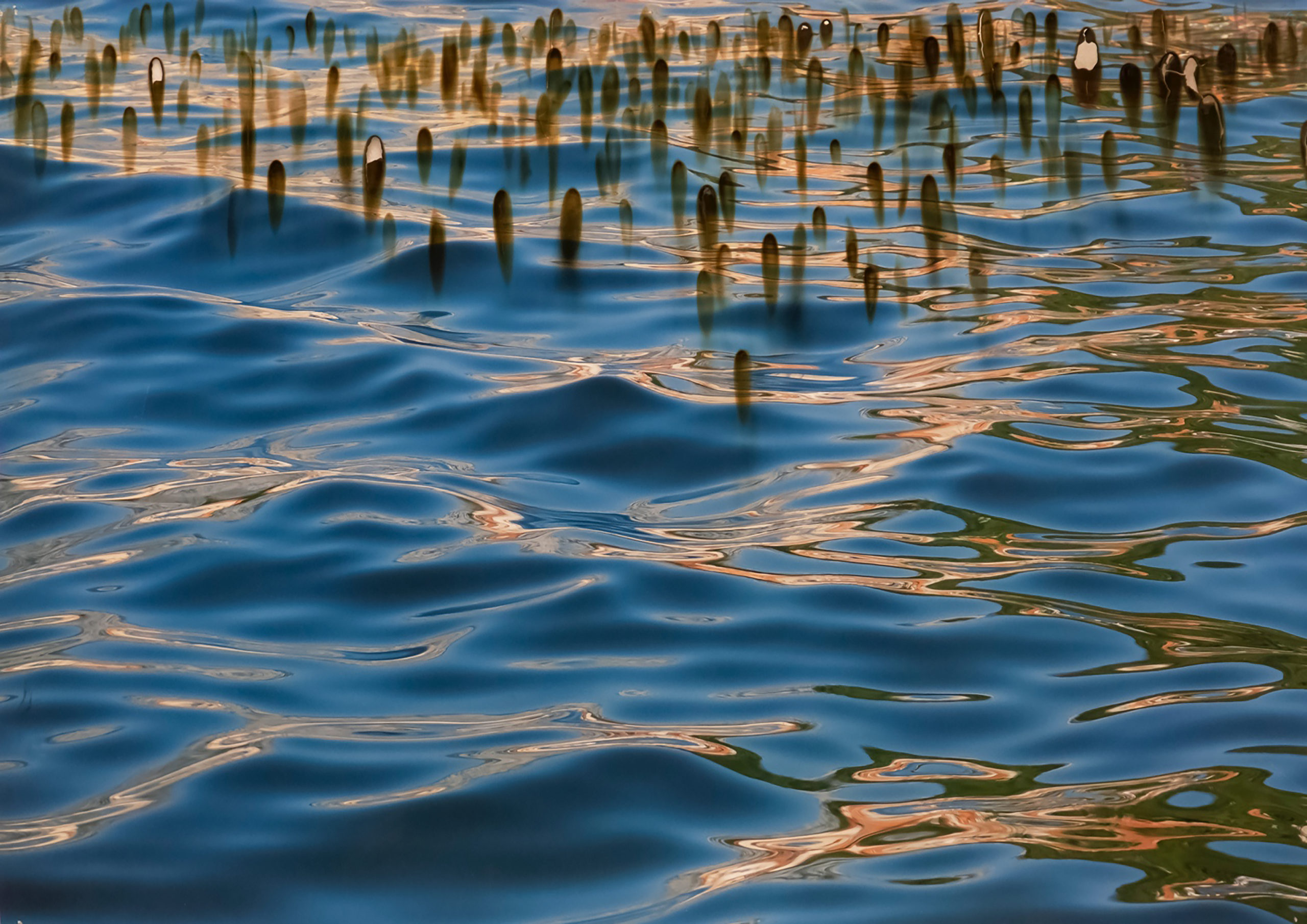
5. What inspires you and how do you feel about living as a photo artist? (As an artist, do you feel like there is a difference between you and the rest of society?)
The word “artist” translates into Chinese as “艺术家 yishujia.” The character “家 jia” means a person who has mastered some kind of specialized knowledge, such as a scientist. I am currently a student at FH Bielefeld, which is refining my personal ideas, as well as improving the way I express and present my work. Even in the future, I probably won’t be confident enough to consider myself an artist, but rather an“art worker.” I think every artist or art worker is a narcissist or has a strong desire to express themselves. They express their ideas and convey their message through dance, actions, song, painting, photography, sculpture, etc. I think we creators are the ones who express our ideas and pass on information through art.
I think we creators transmit information through art. If I understand art correctly at this point, then artists are no different from other people in society. Other people can convey their message through words and language, yet we may convey our message in more or different ways.
6. If you need to explain your art to somebody outside of the industry. What would you do or say?
I don’t want to start by telling people what I have photographed or what I am trying to tell them about my work. Also I think this approach would be boring, like a math teacher teaching grade school students that 1+1=2, there would be no why, it would simply be a matter of writing it down. I prefer to tell people the story behind a certain series of photos I made, what happened, and how I felt at the time. Then, those viewers go back and look at the photos, and they may relate to them, or they may have other feelings.
Whether the feelings are of fondness, pleasant surprise, or hatred and disgust, the fact that there is any kind of feeling is good. This is the communication between people or between people and artworks. I would also like to say that people feel differently when they look at the same work when in different states of mind. For example, when I first made Untitled, I just wanted to pour out my emotions. When I looked at the work again, the sea in the photograph seemed much more peaceful underneath the image of fire I had added as a first layer.
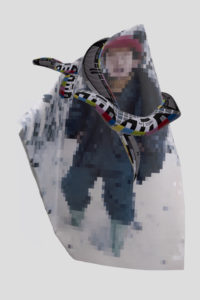

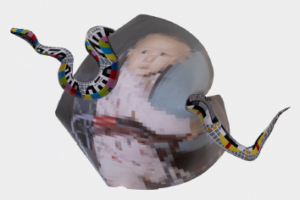
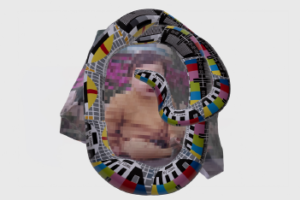
7. How are photo artist perceived by the general public in China vs the West?
The art market has been growing rapidly in China over the past few years, and we have seen more and more galleries and private art museums open in the country according to online sources. This is a good thing, both for the general public and for us as a community of art workers. However, art is still active in a very small group, and these galleries and art museums will only be more common in big cities. For my parents, if they can’t see what certain artwork is, they don’t like it. They think it’s very hard for people to make art as a career and follow the path of an artist. They can’t understand why I took such a difficult path.
Currently, the popularity of art in Germany is much more widely spread than in China. There are many art museums and galleries. There are also many art associations. In Germany, there are people who like my photos and pay hundreds of Euros for them, while in China it is not worthwhile to pay thousands of Chinese Yuan for a so-called “reproducible commodity” like a photograph.
8. Since when have you been exploring your childhood in your works? What makes this an important subject matter to you?
Since the end of 2019, when I graduated from university as an undergraduate.
The personal reason is that I wanted to make use of this special time of graduation to thank my grandfather for exposing me to photography from a young age. I also want to look back on my learning experience like a dream. I always thought I liked photography but never thought I could have the opportunity to study it.
The other reason was that I was, at the time, still without a camera, and then came the pandemic, so I had to look for new ways to create and find new themes, which is currently still my main subject.
9. How would you describe a creative moment? How do you achieve it? Or does it come to you out of nowhere?
I don’t like to talk… what I like most is to sit in a certain place and dwell. At that time, the mind is completely empty, but all kinds of wild ideas will also appear. However, most of my ideas emerge in the shower, but these ideas are not produced instantly. In fact, they come up by constantly thinking, executing, perfecting, reworking, pondering, and by going through a process of practice.
Every time an idea appears, I will write it down in a small notebook. After a few days, I go back to the idea, and if I do not think it is too stupid, I will start producing photographs of these ideas. I’ll continue by leaving the work alone and will go back to them in a few days. At this point, I might be dissatisfied, decide to rework the piece, and make a new one again. Sometimes, the second time, the work is visually completely different from the first draft.



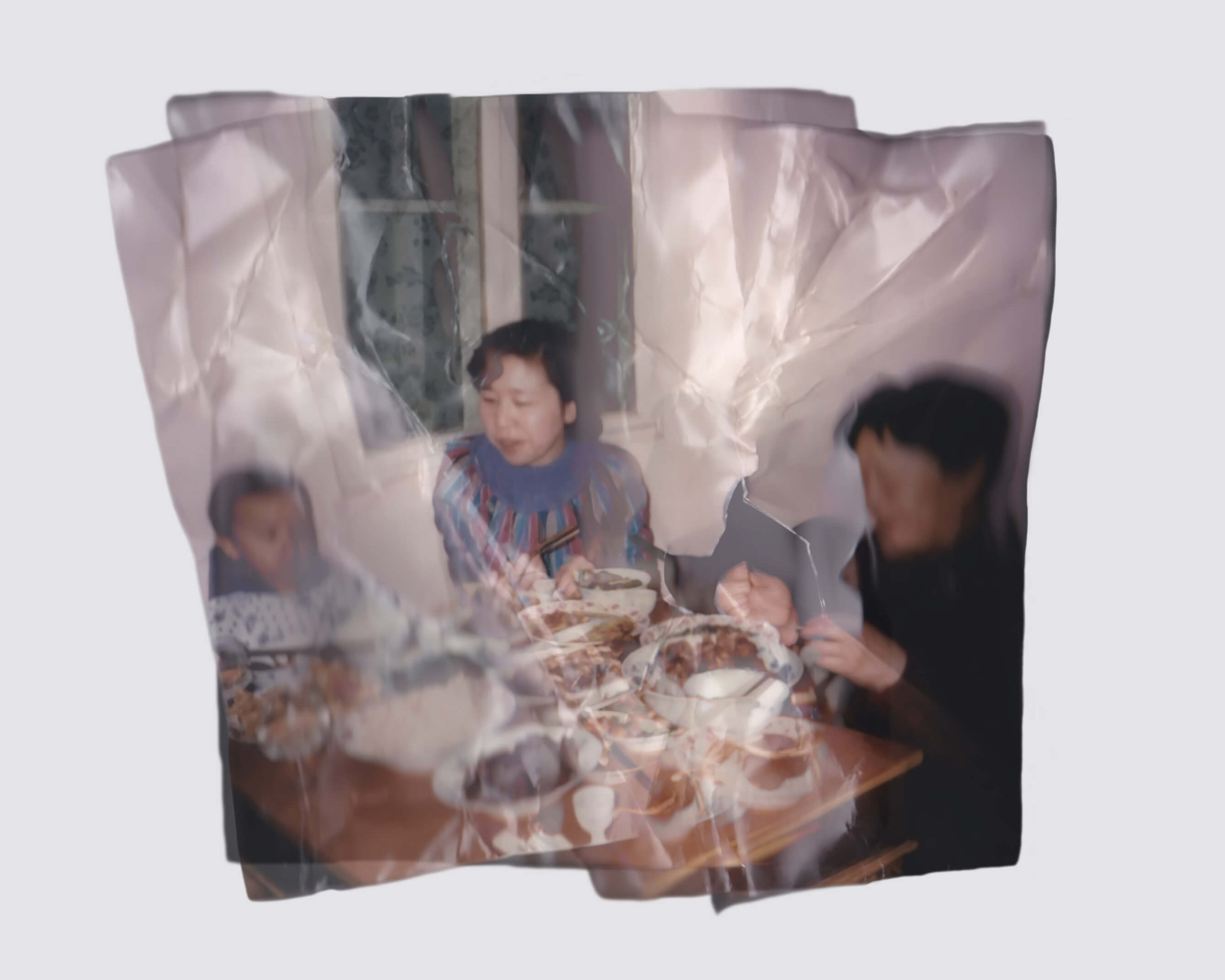
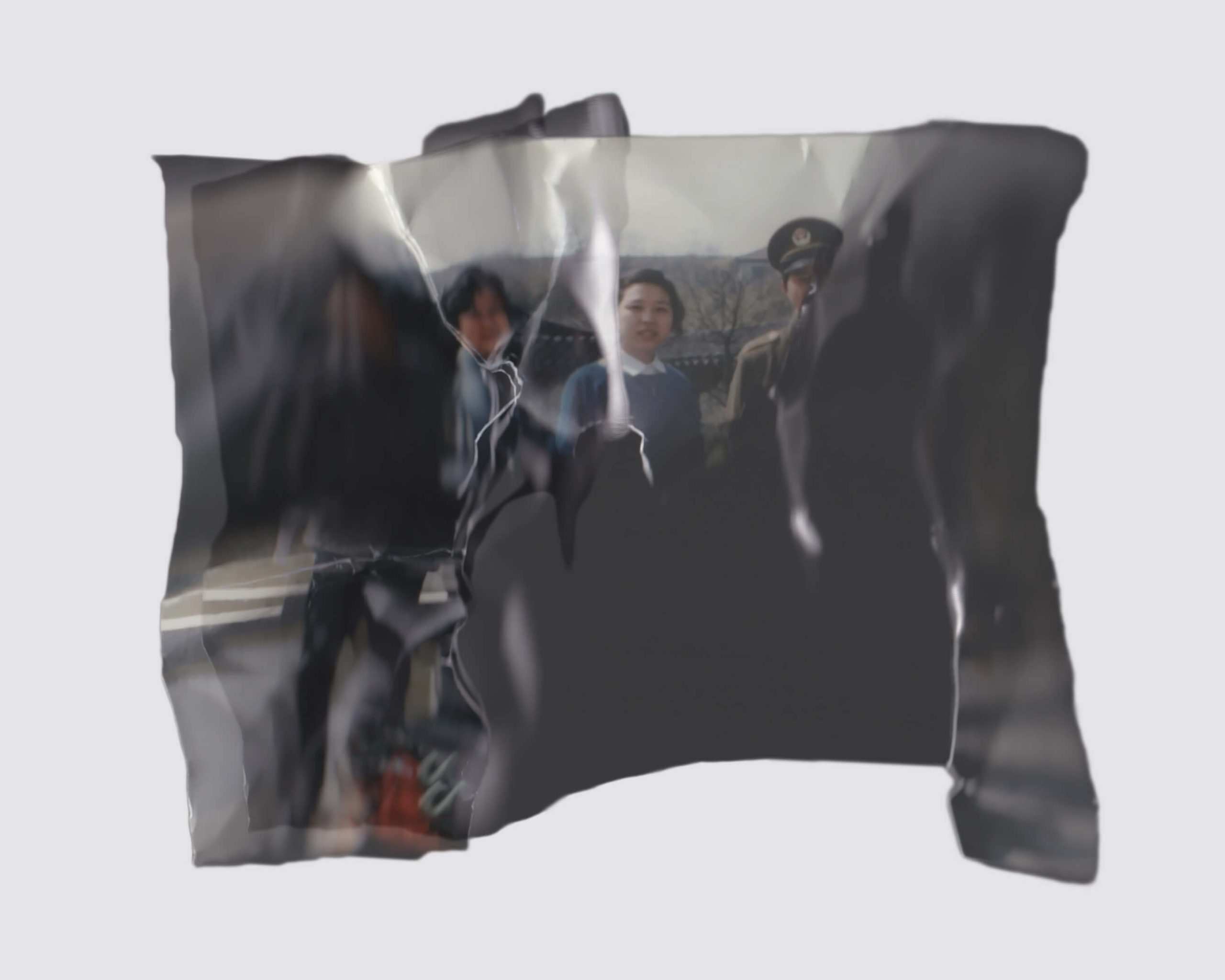

10. What is the work you are most proud of?
That would be “Baum/Tree” because this series represents my first shift in terms of shooting.
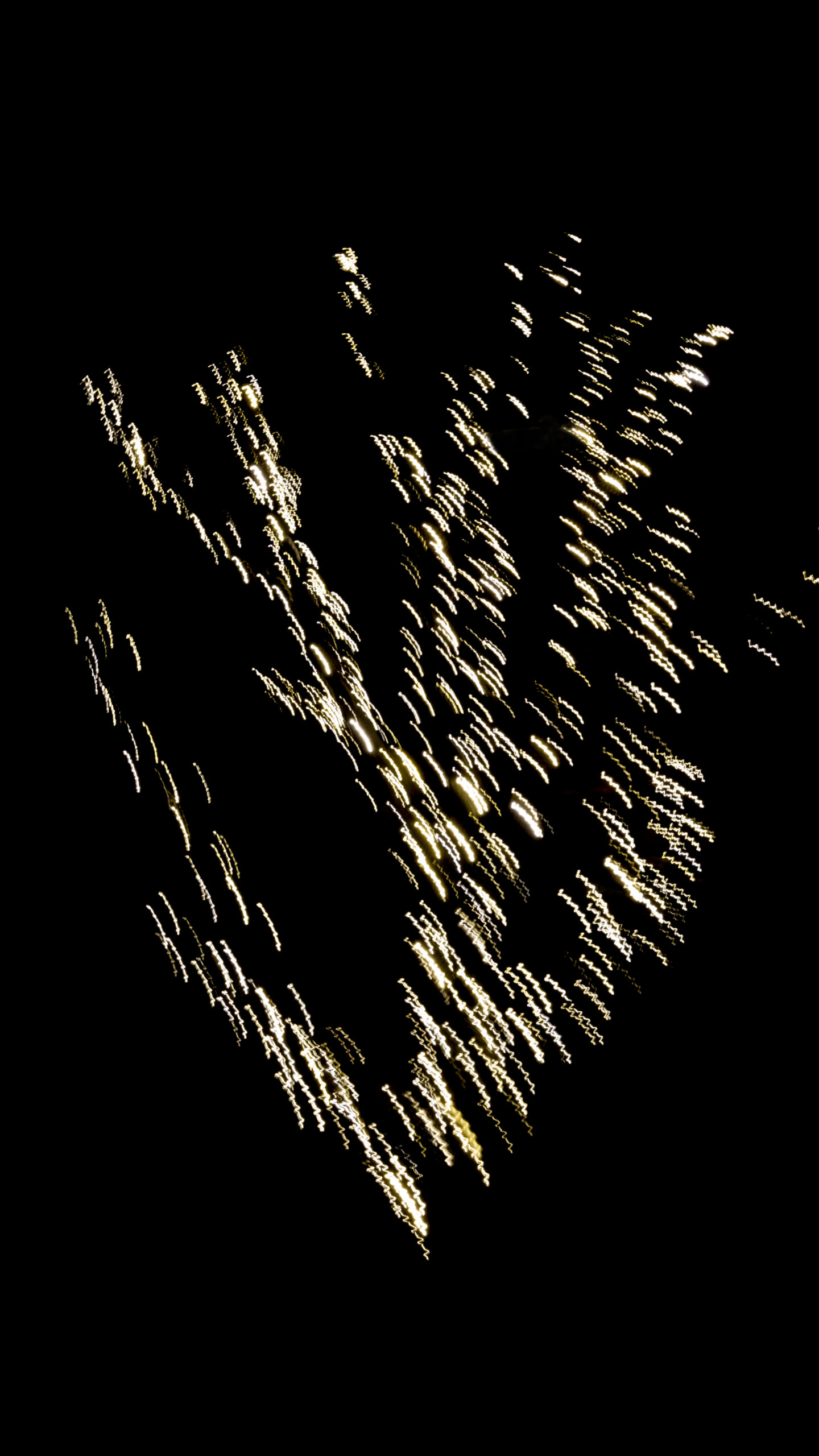
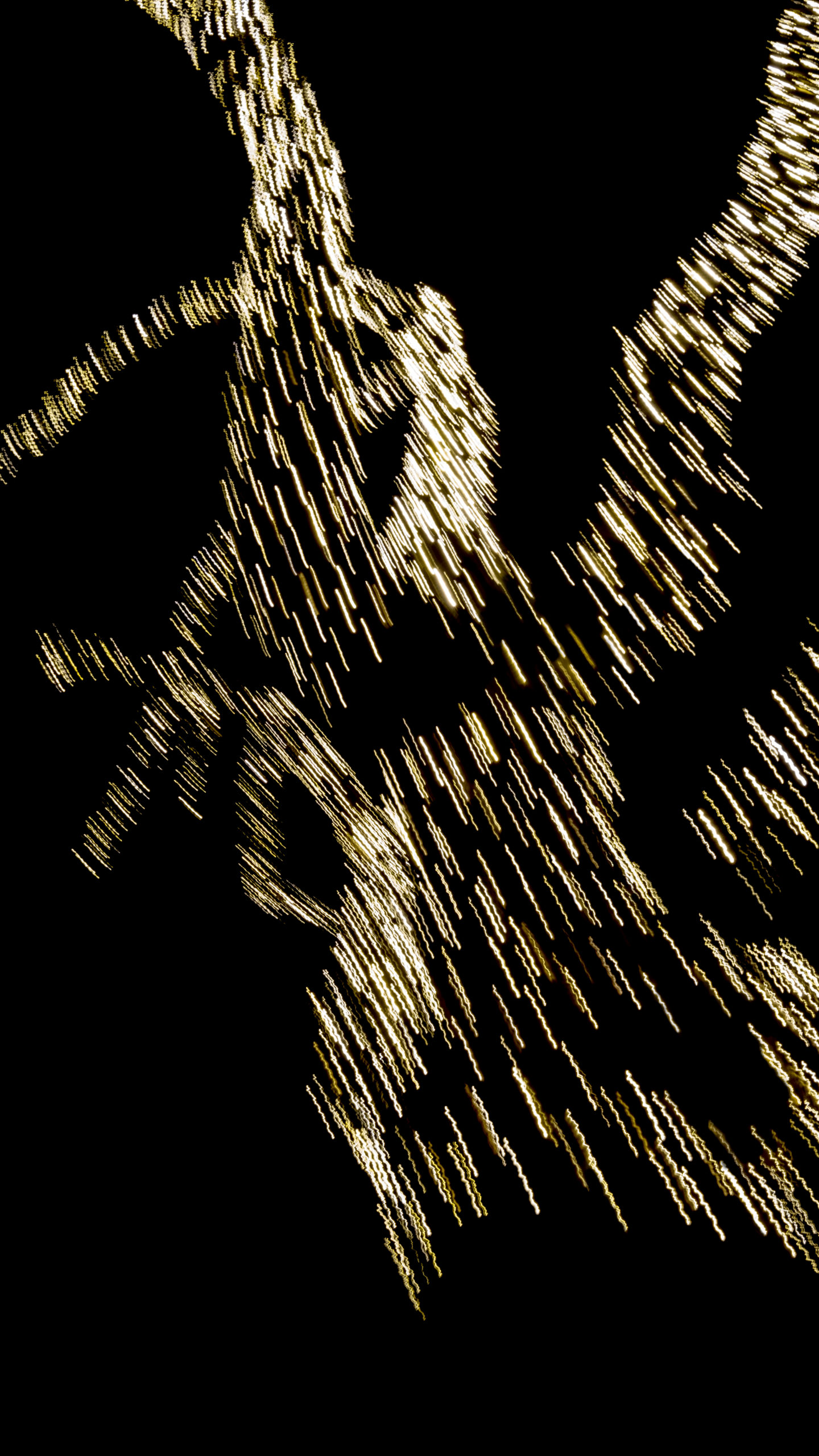
11. How do you think your move to Germany influenced your work?
A very big influence. When I started to study photography systematically, I realized that there are many different ways to create. I was able to shoot in a much wider range of ways. When I was in China, I was still shooting very figuratively.
12 What has been your biggest challenge as a photo artist?
Ideas. As I said earlier, I don’t have a fixed way of creating my work. My ideas are always fragmentary, there is no series of ideas that I have been able to follow all the way through, and my work has not developed a unique style.
13. What do you want to explore in the next 5 years?
The work is still based on the processing of old photos, and the theme is still around family, memory and archival photos. Of course, it is not only limited to these themes.
In terms of work, I want to actively promote my work, and recently I have been applying to some group exhibitions in galleries.
Like our interview about photo artist Li Zhang and our other stories? Follow us on Facebook and Instagram.
Instagram: @li_zhang_fotograf
Images Courtesy of Li Zhang

